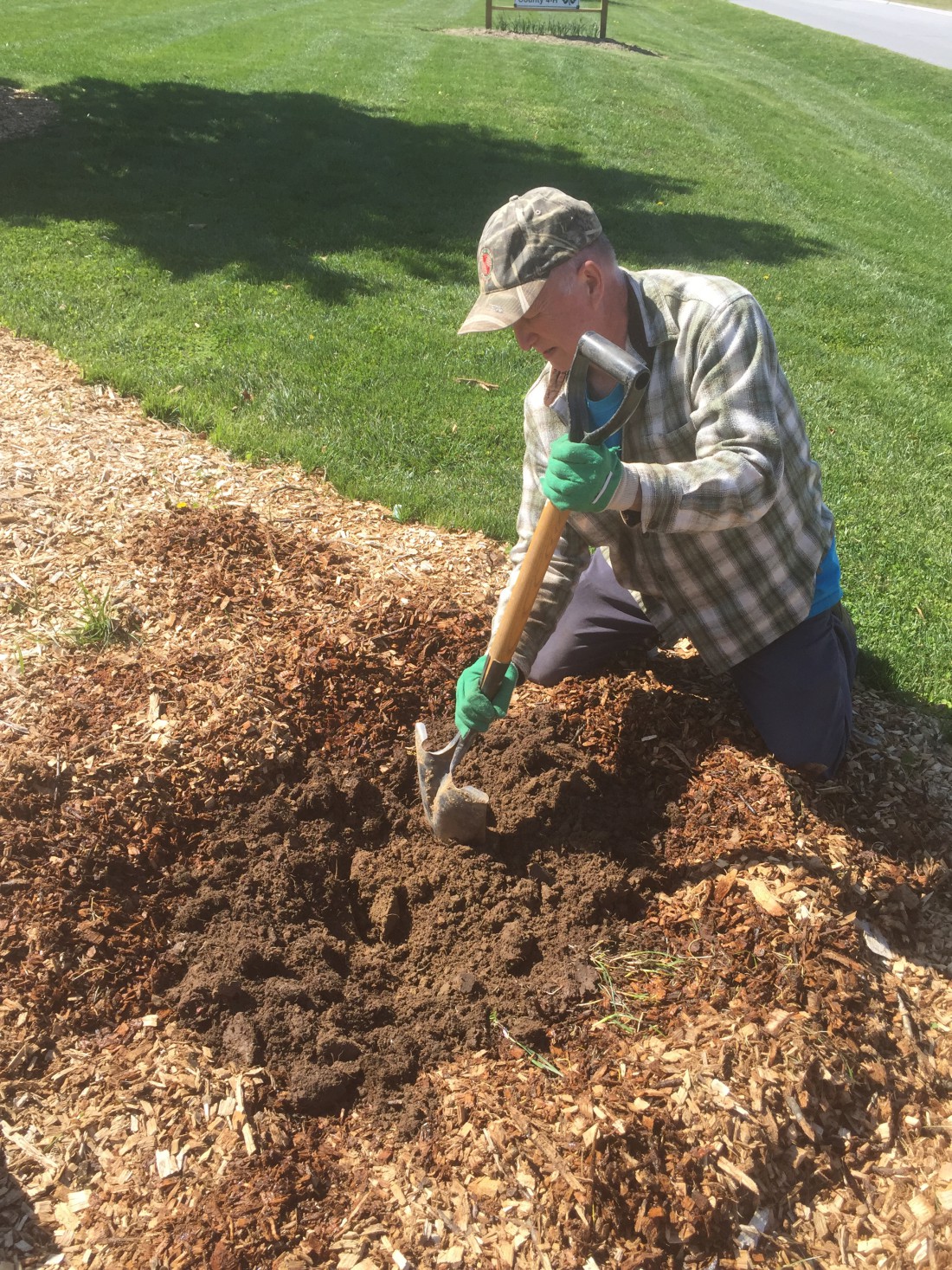Gardening in the mountains can be tricky, but a Henderson County gardening workshop series offers newcomers to Western North Carolina some tips for horticultural success.
The N.C. Cooperative Extension Henderson County Center’s 2018 Home Gardening Series, Mountain Transplants: Gardening in Western North Carolina, began this month and continues through July, covering topics like attracting and feeding mountain pollinators, maintaining a mountain landscape garden and new plant varieties.
Steve Pettis, the Henderson County commercial and consumer horticulture agent, will teach two of the classes. “If you are newly arrived from Florida, where you are accustomed to gardening with tropical plants, growing tomatoes in two seasons per year and having flowers year-round, then gardening in Western North Carolina is going to be a gardening culture shock,” he says. “Our growing season is short; tomatoes can’t go into the ground until Mother’s Day and gardenias freeze to death here.”
The first class, on Thursday, June 7, will explore identifying, attracting and protecting insects that benefit humans because of their role as pollinators. Pettis will talk about which plants are best for enticing and feeding pollinators and how to build shelter for them. He will also focus on ways to get rid of unwanted insects without using pesticides.
In another class on Monday, June 11, Pettis will share strategies for maintaining a mountain landscape garden that celebrates the natural beauty inherent to WNC. “I think mountain gardeners should think mostly native plants, work with the terrain and avoid invasive plants,” Pettis says. “It really bothers me to see a homeowner clear their lot of the native vegetation and plant a suburban garden — grass, one shade tree, a few hollies — as if they live in Raleigh or Charlotte. Why move to the mountains if you are going to spite the native flora? I encourage people to preserve the native plants on their properties while enjoying noninvasive garden plants, native or exotic.”
Finally, John Vining, former Polk County Extension director and horticulture agent, will wrap up the series on Monday, July 9, with a look at new plant varieties that are coming out of the horticultural breeding program at N.C. State Mountain Horticulture Research Center.
Pettis notes that although mountain gardening has its idiosyncrasies, the results are worth the effort. “You can grow so many veggies here,” he says. “And they last a long time. Last year, I saw lettuce in August; tomatoes in mid-October. You can grow rhubarb here. This feels like black magic to a gardener who is from south of here or closer to the coast. Usually it gets so hot in those areas that by July the garden is spent. Gardening in the mountains has its challenges, but the opportunities are great.”
WHAT: Gardening for Pollinators in WNC
WHERE: Henderson County Extension Center, 100 Jackson Park Road, Hendersonville
WHEN: 6:30 p.m. Thursday, June 7
WHAT: Maintaining the Mountain Landscape Garden
WHERE: Henderson County Extension Center, 100 Jackson Park Road, Hendersonville
WHEN: 6:30 p.m. Monday, June 11
WHAT: New Plant Varieties for WNC
WHERE: Henderson County Extension Center, 100 Jackson Park Road, Hendersonville
WHEN: 6:30 p.m. Monday, July 9
Cost is $25 per class, due one week before the class date. For details and to register, visit avl.mx/4zo. or contact Steve Pettis at steve_pettis@ncsu.edu or 828-697-4891.





Before you comment
The comments section is here to provide a platform for civil dialogue on the issues we face together as a local community. Xpress is committed to offering this platform for all voices, but when the tone of the discussion gets nasty or strays off topic, we believe many people choose not to participate. Xpress editors are determined to moderate comments to ensure a constructive interchange is maintained. All comments judged not to be in keeping with the spirit of civil discourse will be removed and repeat violators will be banned. See here for our terms of service. Thank you for being part of this effort to promote respectful discussion.